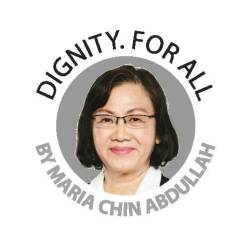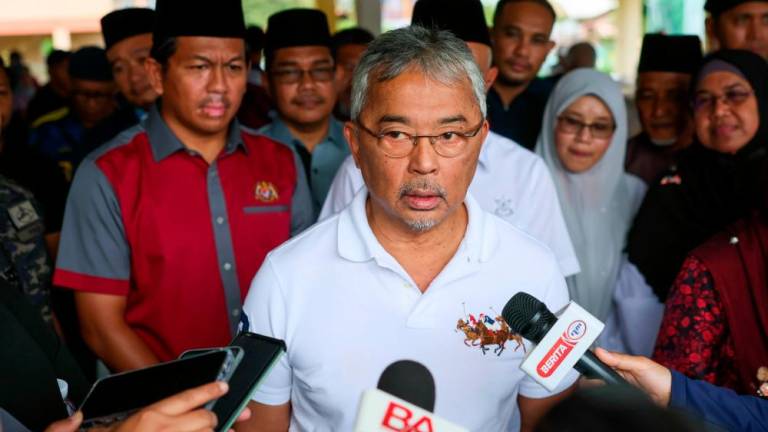THE Housing and Local Government Ministry could table amendments to the Local Government Act 1976 next year to reinstate Local Government Elections.
There is much expectation that local councillors will be elected again. Since 1965, Malaysians have been denied of their third vote to elect their local representatives.
There are 154 local authorities in Malaysia and the effectiveness of these councils varies. But at some point they have all been open to abuse of power and mismanagement.
It is likely that local elections will be introduced in stages.
Problems with the local councils include the lack of action over draft amendments to the Petaling Jaya Local Plan’s land status despite findings by a Select Committee on Competency, Accountability and Transparency. The Kuala Lumpur Draft Plan was only gazetted last year after 10 years and cost RM30 million.
The decision-making process in local governments need to be restructured to empower its officers to check and balance decisions in the councils from being made by only one person or a few heads of departments.
If this power structure is not addressed, then having local elections for councillors will be meaningless and would have to include the election of mayors and council heads.
When it comes to development plans, there tends to be less consultation and the process seems to be more authoritative. A local authority cannot function effectively if it does not engage with its citizens. Even councillors find it hard to question development projects. For example, calls by MBPJ councillors to review the decision over the development of a plot of land along Lorong Sultan was reported to have led to a walkout as the then mayor had refused to allow a vote on the decision.
Introduce a standard procedure for all local councils so that there is always a platform for residents to question city council leaders. The consultation with residents including with residents associations and Rukun Tetangga must be more than just a practice but a constant in the process of approving development plans.
In the 21st century, there are better ways of engaging the community including the use of online surveys, town hall discussions, focus groups and panels. This would enable local councils to do research and gather analyses on the problems that need to be solved. It ensures that city council officials would be able to cast a broad net to ensure that their plans are representative of the interests of the community as a whole.
Technology allows the use of live data instead of historic data which enables local governments to capture the moment as it happens and make relevant decisions to improve services. Digital platforms such as mobile applications and social media for example make it easier for the community to submit responses.
The Petaling Jaya City Council recently introduced a mobile app that allows users to file complains, make payments, apply for permits and other services. This is a good start and should be expanded to gather responses on development projects and plans such as the redevelopment of the Petaling Jaya Old Town Market.
Collecting data for the sake of it is useless and does not advance any cause. Not every complaint is useful and analysing the result of the data that is collected must be done effectively. The New York City Council for example employs data scientists to sort out the data and work with department heads to introduce policies.
It is important that as we digitise local government. Its officials must be able to understand and become invested in the changes. One of the biggest problems with the introduction of tools that focus on data analysis is that not everyone, especially those closest to the problem, is comfortable with the idea of using data.
Solving this can sometimes mean a complete cultural shift within the organisation as the use of new technology to replace olds ways of doing things can be hard. This is where leadership comes into play.
Even the more advanced city councils are known to have different departments with varying levels of efficiency, openness to innovation and commitment to solutions.
The Ministry of Housing and Local Government can introduce training centres for local government officials on how to administer the local governments. With the exception of Kuala Lumpur City Hall Training Institute, there is no training institution for local governments. Training should also focus on how to address the issue of departments working in silos.
Due to the influence of political parties over local council appointments, it may be hard for some councillors to work alongside state assemblymen and MPs.
Other agencies like the police, fire department, and welfare department do have to work together. The reduction of crime in an area is not just about increasing police patrols but includes having more streetlights, community centres for youth, etc.
Perhaps the next best step is to initiate a consultative process with the residents. There is no point in diverting resources to solve problems that aren’t there.
The district of Freiburg in Germany is a famous green city with a record of having only 428 vehicles per 1,000 residents and over 400km of cycle paths. Land use and transport plans are developed simultaneously and are fully integrated. However development was introduced only after consultation with the residents. Their latest land use plan was developed with input from 900 citizens, 19 nearby municipalities and 12 special purpose governments in the region. With this process, residents were not only backing the development plans but they also had a say on what they wanted from these development.
Another good example is the Roca Programme introduced in Baltimore in 2018 to tackle crime. The mayor worked with local advocates and business leaders to reach out and build relationships with juvenile kids in the city to better understand their behaviour. This allowed the city to introduce community services with the help of other agencies for at-risk individuals.
In contrast, Petaling Jaya was named as one of the winners of the UN Educational, Scientific and Cultural Organisation’s Learning City Award earlier this year for making significant strides to improve accessibility to public learning spaces and in providing free bus services which double up as information disseminators, through the use of its screens. This prestigious award is something to be proud of but are these improvements effective in promoting education in communities with high concentration of B40 residents like Taman Medan.
If we only search for simple solutions we will become a nation that only demands immediate answers to problems we encounter.
While we await a more accountable system with the introduction of local elections, it is clear the transformation of local governments must include engagement with the community, the use of technology and be data-driven.
Comments: letters@thesundaily.com













